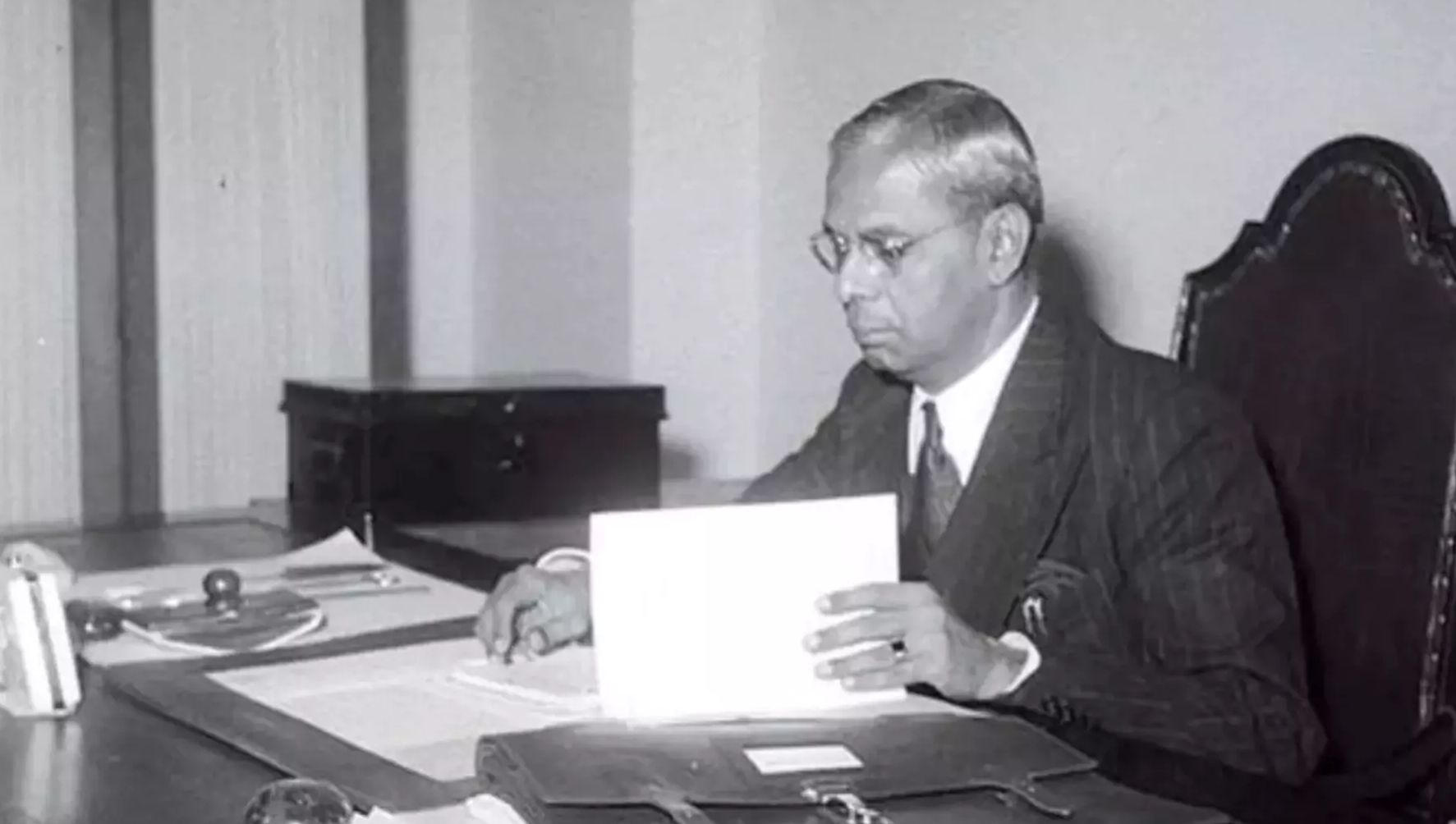The Forgotten Finance Minister: RK Shanmukham Chetty and India’s First Budget (UPSC Perspective)
India’s economic journey post-independence was shaped by several visionaries, yet one name often overlooked in history and UPSC preparation is R.K. Shanmukham Chetty. As India’s first finance minister, he presented the inaugural Union Budget on 26 November 1947, a crucial document that reflected the financial challenges faced by a newly independent nation. This topic is essential for UPSC aspirants preparing for Indian Economy, Modern History, and Polity.
R.K. Shanmukham Chetty: The First Finance Minister of India
While finance ministers like Morarji Desai and Manmohan Singh are widely recognized for their economic policies, Chetty's contributions remain largely forgotten. A sharp economic thinker, he had previously served as the Diwan of Cochin (1935-41), where he implemented key reforms, particularly in port development.
Partition and India’s Economic Crisis
Chetty’s budget speech in November 1947 provided a candid assessment of India’s fragile financial state. The nation was grappling with the economic aftermath of Partition, which led to massive displacement, food shortages, and rising inflation.
In his speech, Chetty emphasized:
"The budget of the central government for the next few years will be materially affected by this unexpected development in the country. Our whole programme of post-war development will have to be reviewed in the light of this context."
This statement underscores the immediate financial strain caused by Partition and the need for revised economic planning. His sharp grasp of economic fundamentals was evident when he addressed inflation concerns:
"The money demand for goods is colossal compared to their local production."
UPSC Exam Relevance:
GS Paper 3 (Economy): Impact of Partition on Indian economy.
GS Paper 1 (Modern History): Post-independence consolidation.
Essay Paper: Role of finance ministers in shaping India's economy.
Chetty’s Vision: Private Enterprise vs. Socialist Policies
One of the reasons for Chetty’s short-lived tenure was his ideological difference with Nehru’s socialist-leaning government. He firmly believed in the role of private enterprise in India’s industrial growth:
"I hold the belief that for many years to come there is need and scope for private enterprise in industry."
However, his views clashed with the Congress-led government, which leaned towards state-controlled economic policies. This ideological misalignment ultimately led to his resignation in 1948.
UPSC Exam Relevance:
GS Paper 2 (Polity & Governance): Role of ideology in policy formulation.
GS Paper 3 (Economy): Debate on socialism vs. capitalism in India’s growth model.
A Storied Career in Economics and Politics
Born into a prosperous business family in Coimbatore, Chetty pursued economics at Madras Christian College before obtaining a law degree from Madras Law College. Though he never practiced law, his keen interest in economics and governance led him to politics.
1916 - Joined the Justice Party, advocating for non-Brahmin rights.
1917 - Elected as a councillor in Coimbatore municipality.
1920-1922 - Served in the Madras Legislative Council.
1924-1935 - Held a seat in the Central Legislative Assembly.
1935-1941 - Diwan of Cochin.
1944 - Attended the Bretton Woods Conference, shaping global financial systems.
1947-1948 - Served as India’s first finance minister.
1952 - Elected to the Madras State Legislative Assembly as an independent.
UPSC Exam Relevance:
GS Paper 1 (Modern History): Role of regional leaders in governance.
GS Paper 3 (Economy): International economic institutions (Bretton Woods, IMF, World Bank).
Recognition and Legacy
Despite his contributions, Chetty was often seen as an outsider in Nehru’s cabinet due to his close ties with the British administration. However, even the British recognized his expertise, conferring upon him the title of Knight Commander of the Order of the Indian Empire in 1933.
Post his finance ministry stint, he continued his political journey in Madras state until his passing in 1953. While his tenure was brief, his budget speech remains a crucial historical document, offering insights into India’s economic conditions at independence.
Why R.K. Shanmukham Chetty Deserves Recognition Today
In modern times, when India is re-evaluating its economic policies, looking back at Chetty’s emphasis on private enterprise is crucial. His advocacy for free-market economics was ahead of his time, foreshadowing India’s later liberalization in 1991.
UPSC Exam Relevance:
GS Paper 3 (Economy): Evolution of India’s economic policies.
Essay Paper: Contributions of lesser-known leaders in India’s development.
As we analyze India’s economic history, acknowledging R.K. Shanmukham Chetty’s role in shaping the country’s early financial strategies is essential. His ideas on economic self-sufficiency, private enterprise, and inflation management remain relevant, making him a finance minister worth remembering.
For more UPSC exam insights, economic history, and government policy analysis, visit Atharva Examwise.
By : team atharvaexamwise








